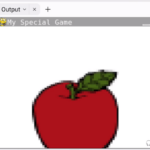Python, an elegant and robust programming language, has solidified its position as a preferred choice among programmers and developers, thanks to its easy-to-understand syntax and versatility. From building web applications to game development and data analysis, Python gnaws at every piece of the programming pie.
Table of contents
What is Python?
Python is a high-level, interpreted programming language that emphasizes code readability. It allows developers to express concepts in fewer lines of code than would be possible in languages like C++ or Java.
What is Python used for?
Python’s design philosophy makes it ideal for a wide array of applications. Web and Internet development, scientific and numeric computing, desktop GUIs, and software & game development are just a few areas where Python’s features shine!
Why Should I Learn Python?
Python is often considered one of the best languages for beginners due to its readability and compact syntax. Moreover, with Python, you stand at the meeting point of numerous application areas, an aspect that augments your learning experience and boosts your versatility as a programmer.
Python Basic Syntax – The Coding Tutorial
Let’s dive into some fundamental syntax concepts of Python that will equip you with the base for creating everything from simple scripts to complex systems.
# This is a comment
print("Hello, World!") # Prints the string to the console.Here, the hash (#) represents a comment in Python, and the ‘print’ function renders the string “Hello, World!” to your console.
# Defining Variables game_points = 10 # Integer Variable player_name = "John" # String Variable
In Python, we don’t need to declare the type of variable, like we do in many other programming languages. In the above code, we defined a variable ‘game_points’ with an integer value 10 and another variable ‘player_name’ with a string value “John.
Python Basic Syntax – Continued
Let’s progress and introduce some other fundamental aspects of Python syntax.
#If-Else Condition
if game_points > 9:
print("You won!")
else:
print("Keep trying!")In above code, we use an if-else conditional statement to check if ‘game_points’ is greater than 9. If it is, “You won!” gets printed. Otherwise, “Keep trying!” finds its way to the console.
#For Loop
for point in range(1, 11):
print(point)In the code above, the ‘for’ loop iterates through a sequence of numbers created by the ‘range’ function, printing each number to the console.
Python Data Structures
Let’s dive deeper into Python programming and explore some of the basic data structures this language offers.
# Lists fruit_list = ["apple", "banana", "cherry"] print(fruit_list)
In this code, we define a list ‘fruit_list’ consisting of three elements and print it to the console. Elements in a list are ordered, changeable, and allow duplicate values.
#Tuples
fruit_tuple = ("apple", "banana", "cherry")
print(fruit_tuple)In contrast to lists, tuples in Python are ordered and unchangeable. Above, we define a ‘fruit_tuple’ with the same elements as ‘fruit_list’ and print it to the console.
#Dictionaries
player_score = {
"John": 10,
"Mary": 12,
"James": 8
}
print(player_score)Python dictionaries are unordered and changeable. Here, we define a ‘player_score’ dictionary with player names as keys and their scores as values, then print this dictionary.
#Sets
fruit_set = {"apple", "banana", "cherry"}
print(fruit_set)In Python, sets are unordered, unindexed, and do not allow duplicate values. Here ‘fruit_set’ is defined containing the same elements as the previous ‘fruit_list’ and ‘fruit_tuple’ we discussed, and we then print it.
Python Functions
Functions are blocks of code that perform a specific task and can be reused. Python provides built-in functions, like print(), but you can also create your own functions.
#Defining a function
def greet_player(name):
print("Hello, " + name)
#Calling a function
greet_player("John")Here, we define a function ‘greet_player’ that takes one parameter ‘name’. When called with an argument (“John”), it prints a greeting to the player.
Error Handling in Python
Python has several types of error messages. The most common are SyntaxError (for incorrectly typed Python code) and Exception that includes IOError, ValueError, ZeroDivisionError, ImportError, etc.
#Error handling
try:
print(unknown_var)
except:
print("An error occurred")Here, we use a try-except block to catch and handle possible errors. In the provided code, an error will occur because ‘unknown_var’ is not defined. The error is handled gracefully by the except block and prints “An error occurred”.
Python Modules
Modules in Python are files containing Python code. They are used to organize and manage code effectively. Python comes with numerous built-in modules, and you can also create your own.
# Importing a module import math print(math.pi)
The ‘import’ keyword is used to import modules in Python. Here, we import the ‘math’ module and print the value of ‘pi’.
File Handling in Python
Python provides several functions to create, read, write, and manipulate files.
# Creating a file
file = open("testfile.txt","w")
file.write("Hello, Zenva!")
file.close()The ‘open()’ function is used with two arguments, the name of the file and the mode. There are four methods (modes) for opening a file: “r” – read, “a” – append, “w” – write, “x” – create. Here, we’re writing “Hello, Zenva!” to a file named “testfile.txt”. After we’re done, we close the file using the ‘close()’ function.
List Comprehensions in Python
List comprehension is a concise way to create lists in Python. It is a syntactic sugar that reduces lines of code while keeping the code clean and understandable.
# Create a list of squares using list comprehension squares = [i**2 for i in range(10)] print(squares)
The code above generates a list of the squares of numbers from 0 to 9 using list comprehension.
Python Classes & Objects
Python is an Object-Oriented Programming language that allows us to create classes and objects.
# Defining a class
class Player:
def __init__(self, name, score):
self.name = name
self.score = score
# Creating an object
p1 = Player("John", 10)
print(p1.name, p1.score)Here, we define a class named ‘Player’ with a special function ‘__init__’ that serves as a constructor. We also create an object of the class ‘Player’ and print the object’s properties.
Error Handling – Raise
The ‘raise’ keyword allows you to throw an exception at any point in your program.
# Raising an error
x = -1
if x < 0:
raise Exception("Sorry, no numbers below zero")In the above code, if ‘x’ is less than zero, an exception is raised with the message “Sorry, no numbers below zero”.
Keep Learning and Building
Whether you’re taking your first steps in programming with Python or gearing up to tackle more advanced topics, the key is to never stop learning and building. Coding is a craft that gets better with practice. Stumble, learn, modify, and perfect. That’s the mantra!
Looking to deepen the dive into the world of Python? Look no further than Zenva’s Python Mini-Degree! This comprehensive collection of courses has been designed to teach you Python programming, end to end. Knowledge of Python opens various doors including game development, data science, and even robotics.
The Python Mini-Degree covers a swath of vital topics – from coding basics and algorithms to fancy concepts like Object-Oriented Programming, game development, and app development. But what sets it apart is its hands-on approach. You’re not just learning Python – you’re applying it in practical projects like creating games, building algorithms, and developing real-world apps.
Whether you’re a beginner starting from scratch, an intermediate coder aiming to diversify your skills, or a seasoned professional seeking new challenges, our Python Mini-Degree has something to offer you. With our flexible learning options, project-based courses, and certification upon completion, we ensure you get the best of Python learning inline with real-world industry developments, anytime, anywhere.
For those looking to branch out in specific areas, we present an array of Python courses in our Python category. They cater to a wide variety of topics and skill levels. So whether you want to delve into a Python crash course or upskill yourself in Python for Machine learning, we have a pipeline of learning ready for you!
Conclusion
Python, an ever-evolving programming language, is a fantastic tool every programmer should have in their coding arsenal. Understanding and mastering Python does more than simply add another line to your CV – it empowers you to innovate, create, and bring ideas to life in the digital world.
To expand your coding knowledge, you need comprehensive courses that grow with you. Here lies the beauty of Zenva’s Python Mini-Degree. With us, you embark on an exciting journey from beginners’ concepts to advanced programming. Along the way, we’ll offer practical challenges that encourage you to apply the skills you’re learning, which is the crucial step in solidifying your knowledge. Start your Python adventure with us today – we promise, it’s a journey well worth taking!
Did you come across any errors in this tutorial? Please let us know by completing this form and we’ll look into it!

FINAL DAYS: Unlock coding courses in Unity, Godot, Unreal, Python and more.







